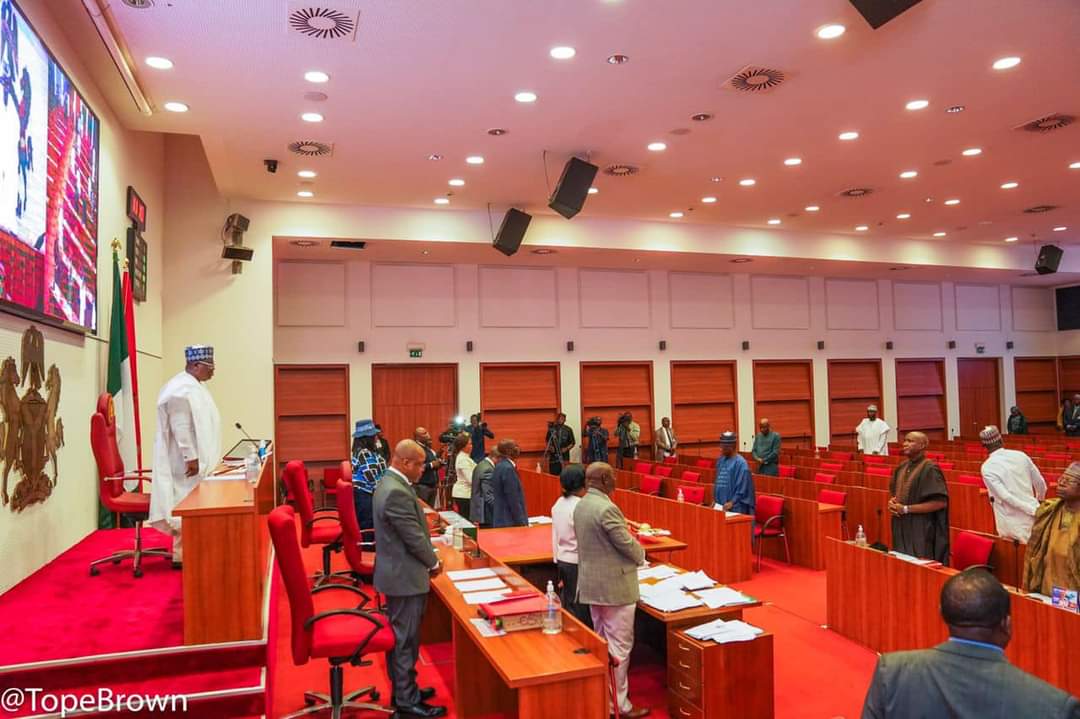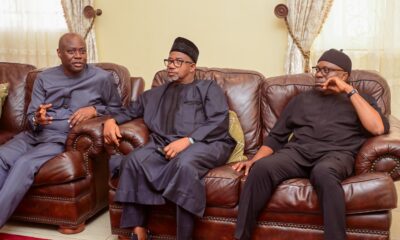Business
Group Slams NASS For Raising Nigerians’ Tax Burden

The Centre for the Promotion of Private Enterprise (CPPE) has slammed the National Assembly for hurriedly passing the 2022 finance bill without the benefit of input from citizens who they were elected to represent.
Chief Executive Officer (CEO) of CPPE, Dr Muda Yusuf, who stated the displeasure of the CPPE over the hurried passage of the bill, said the act raises key questions.
“The Centre is disturbed by the rushed passage of the 2022 Finance Bill by the National Assembly. It calls to question the representation role of the Assembly. There was practically no room for public hearing and engagement with stakeholders in the consideration of the bill”, he said.
According to him, “this is a major let down by the National Assembly in its representation role in our democracy. The action is not consistent with the ideals and principles of our democracy because sovereignty belongs ultimately to the people.
“What the National Assembly has done is tantamount to disrespect, disregard and contempt of the Nigerian people and the business community”, he srated.
The Bill that has been passed contained the following provisions, among others: “imposition of excise duties on all services with rates to be determined by a presidential order; imposition of 0.5 per cent tax on all eligible imports from non-African countries to fund Nigeria obligations to international organisations; and an increase in Tertiary Education Tax from 2.5 per cent to three per cent of company profit”, Yusuf said.
Dr Yusuf, therefore, called on the President to withhold assent on the 2022 Finance Bill until the National Assembly properly engages stakeholders as required by legislative protocols.
He noted that “this is a piece of legislation which has profound implications for investment, citizens welfare and the Nigeria economy. It is curious and puzzling that the stenate gave just 24 hours’ notice for stakeholders to attend a public hearing on the bill”.
The CEO continued that, “the public notice was published on December 21, 2022 for a public hearing scheduled for December 22, 2022. There is no better expression of deliberate exclusion of stakeholders from this important legislative process.
“The House of Representatives gave a more generous notice of about three weeks. But in a sudden and baffling twist of events, the House passed the bill before the date of the advertised public hearing which was January 13, 2023. The bill has since been forwarded to the President for assent. This haste is incomprehensible.
“It is regrettable that National Assembly hurriedly passed the bill without the benefit of input from citizens whom they were elected to represent.
“This is a major letdown by the National Assembly in its representation role in our democracy. The action is not consistent with the ideals and principles of our democracy because sovereignty belongs ultimately to the people”, he stated.
He said that all of these have far-reaching implications for investors and citizens, saying that it will affect the cost of production and will affect operating cost and would undermine investors’ confidence.
Yusuf also said it has profound inflationary implications, because it will effectively move corporate tax to almost 35 per cent which is one of the highest globally.
He appealled to President Mohammadu Buhari not to leave a legacy of unbearable tax burden for investors in the Nigerian economy, adding that the torrent of taxes, levies, fees is already crippling business.
Business
Tinubu’s RHI Doles Out N50m To 1,000 Kwara Petty Traders

Business
UBA To Educate SMEs, Business Owners On Withholding Tax

Business
Nigeria Losing $40b Annually From Maritime Sector – NIMENA
-
News4 days ago
Judiciary Press Corps Refutes Online Publication Against Rivers Chief Judge
-
Business4 days ago
Economic Reforms, Determinant To Manufacturing – MAN … AI Adoption As Game Changer
-

 News4 days ago
News4 days agoLet’s Approach Regional Development Issues Differently – Fubara …As S’South Govs Host Fubara To 50th Birthday Celebration
-
Niger Delta4 days ago
A’Ibom Police Enforces Anti-Grazing Law
-
Nation4 days ago
Council Boss Flags Off Projects
-
Politics4 days ago
Thugs Clash Over Anyanwu, Ude-Okoye At PDP BoT Meeting
-
Business4 days ago
LCCI Urges FG To Front Manufacturing Reforms
-

 Politics4 days ago
Politics4 days agoPDP Governors’ Forum Pays Condolence Visit To Makinde …Over Demise Of Elder Brother

